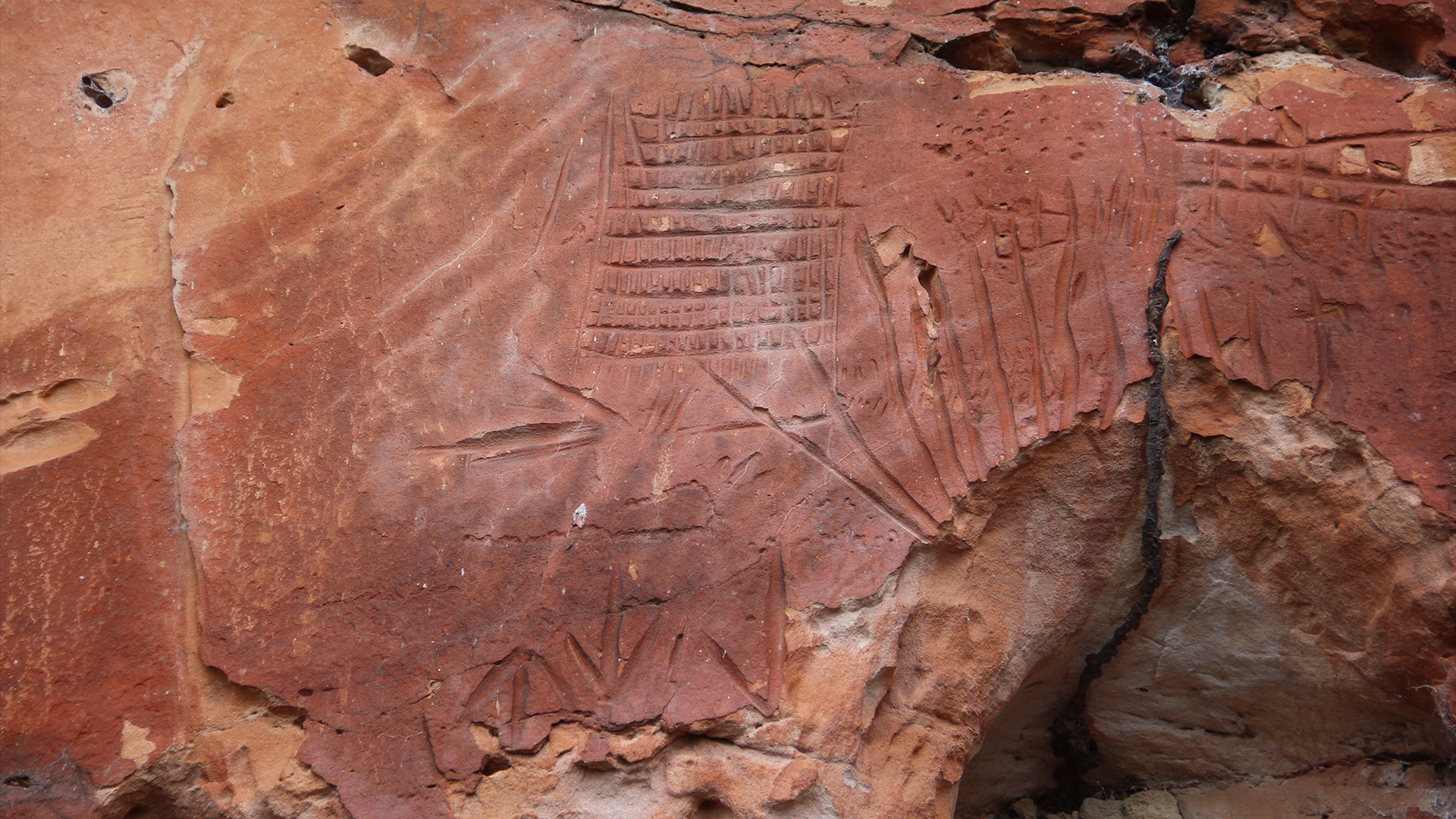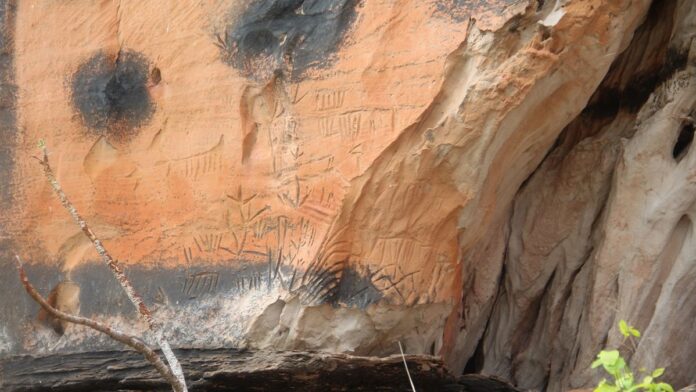[ad_1]
Brazilian archaeologists have discovered a vast number of 2,000-year-old rock carvings that depict human footprints, celestial-body-like figures, and representations of animals, such as deer and wild pigs.
The discovery was made during three expeditions between 2022 and 2023 in Jalapão State Park, located in the state of Tocantins. Researchers with Brazil’s National Institute of Historic and Artistic Heritage (IPHAN) identified 16 precolonial archaeological sites, all located on rocky cliffs close to each other.
“This proximity suggests a possible connection between the sites and clarifies settlement patterns of the ancient communities that inhabited the region,” Rômulo Macêdo, the archaeologist who led the work, told Live Science via Whatsapp.

Many of the newfound carvings are engraved symbols created by wearing out rocks. The team also discovered a handful of red paintings at some of the sites. “It is likely that the paintings are older than the engravings, and that they were made by another cultural group,” Macêdo said.
The rock art finding is “rare and important” because until now, archaeologists had found only stone artifacts from the precolonial Indigenous peoples of Jalapão, Marcos Zimmermann, an archaeology professor at the Federal University of Tocantins in Brazil who was not involved in the recent findings, told Live Science via Whatsapp.
The earlier ceramic artifacts and stone tools found at archaeological sites in Jalapão may have been important items for producing art. “The engravings were probably made using pointed stones and pieces of wood, while the painting pigments were produced from the pulverization of iron minerals very abundant in the region; the powder was then mixed with animal or vegetal fat and applied to the rock using fingers or sticks,” Macêdo said.

The findings in Jalapão have yet to be fully studied. However, they have technical and thematic similarities with other archaeological sites in different states of Brazil, which suggests the rock art dates to around 2,000 years ago, according to Macêdo.
“Further analysis of rock art and archaeological excavations at the sites will provide new information about the way of life and spirituality of these Indigenous groups,” he said. The findings may also shed light on the “symbolic repertoire of precolonial populations,” Macêdo added.
Jalapão State Park covers an area of about 13,000 square miles (34,000 square kilometers) and is an arid area with dunes, rivers and giant rock formations, making it stand out among the surrounding Cerrado biome, a unique tropical savanna known for its biodiversity. It lies about 430 to 500 miles (700 to 800 kilometers) south of the Amazon rainforest.
However, archaeological work in Jalapão has been scarce and has focused primarily on salvage archaeology studies prompted by agricultural or infrastructural developments, Zimmermann said. Some parts of the state have yielded artifacts dating to between 425 and 12,000 years ago, including ceramics and arrowheads, noted Zimmermann, who also served as the general coordinator of research at the Tocantins Archaeology Center (NUTA).
Despite the significance of these discoveries, the park faces threats such as erosion, vandalism and deforestation. IPHAN has announced plans to collaborate with research institutions to develop projects to preserve and disseminate the region’s archaeological heritage. “Sandstone, along with environmental factors like wind and sun, degrades rock paintings,” Zimmermann said.
[ad_2]
Source link


